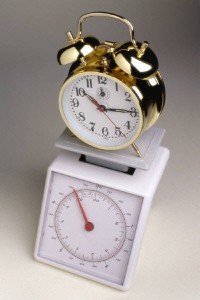 Many children and adults with ADHD experience sleep problems. These often include problems falling asleep at night, frequent awakening at night, trouble waking up in the morning, and difficulty maintaining alertness during the day. If you are finding that you, your child, your spouse or other loved one is having issues around sleep try these strategies.
Many children and adults with ADHD experience sleep problems. These often include problems falling asleep at night, frequent awakening at night, trouble waking up in the morning, and difficulty maintaining alertness during the day. If you are finding that you, your child, your spouse or other loved one is having issues around sleep try these strategies.
Sleep Tips
- Make sure the bedroom is conducive to sleep – quiet, dark, and a comfortable temperature. Check to see that the bed itself and pillows are comfortable, as well. Consider using a fan or white noise machine to aid in sleep.
- In the mornings the environment in the bedroom is just as important to aid in waking up. Open the shades in the room to let in natural light or turn on a soft light. Make sure the temperature in the room is conducive to waking up – if it is too warm it may be harder to awaken and if it is too cold no one wants to get out from under the covers!
- Maintain a consistent bed time each night and consistent wake up time each morning.
 Establish a consistent bedtime routine that is relaxing and helps the person to wind down from the day’s activities. A child’s routine may include a warm bath (if that is soothing to the child), putting on pajamas, having a story told or read from a book by the parent, a soft lullaby, then lights out. An older child or adult may chose to listen to soft music or read a book to help wind down. Just be sure the story isn’t too stimulating and engaging or else the person may have trouble putting the book down! Sometimes a magazine is a better choice as it tends to be a little easier to find a good stopping point.
Establish a consistent bedtime routine that is relaxing and helps the person to wind down from the day’s activities. A child’s routine may include a warm bath (if that is soothing to the child), putting on pajamas, having a story told or read from a book by the parent, a soft lullaby, then lights out. An older child or adult may chose to listen to soft music or read a book to help wind down. Just be sure the story isn’t too stimulating and engaging or else the person may have trouble putting the book down! Sometimes a magazine is a better choice as it tends to be a little easier to find a good stopping point.- Make sure there are no electronic devices in the bedroom that may interfere with sleep – a computer, video games, television, blackberry phone, etc.
- For many people it helps to use the bed only for sleep (or for couples – only sleep and sex). In other words, no television in bed, no handheld computer devices in bed, no reading in bed – if these activities help you to wind down engage in them before getting into your bed. That way when you get onto the bed and crawl under the covers you are cueing your body that it is sleep time.
- Regular exercise during the day is often helpful in promoting sleep, as is relaxation training before bedtime.
- Avoid alcohol and nicotine and limit caffeine later in the day, as these substances can interfere with sleep quality.
- For the person who finds that he or she is in bed wide awake and unable to get to sleep for a long period of time, it is often helpful to get up from bed for a short period of time rather than lying there thinking about how sleep is not coming. Walk downstairs, drink a glass of warm milk or chamomile tea or read a book for about 20 minutes and then return to bed for sleep.
 Setting two alarms clocks to go off – one 20 minutes before needing to get out of bed and one at “get up†time – is often helpful for those who have trouble awakening in the morning. If you are the adult in charge of getting yourself up, set the second alarm clock across the room so you must get out of bed in order to turn it off.
Setting two alarms clocks to go off – one 20 minutes before needing to get out of bed and one at “get up†time – is often helpful for those who have trouble awakening in the morning. If you are the adult in charge of getting yourself up, set the second alarm clock across the room so you must get out of bed in order to turn it off.- Stimulant medications used to treat ADHD can affect individuals in differing ways at night time. For some, the stimulants may interfere with sleep onset when they are taken too close to bedtime. For others, a small dose of stimulant medicine given later in the day can help in not only reducing ADHD symptoms, but also aiding in sleep.
- In addition, for those who have chronic problems in awakening in the morning some have found that waking up approximately 30-45 minutes before normal wake up time in order to take a dose of stimulant medicine, then going back to sleep, makes it easier to get up and out of bed at regular wake up time when the stimulant has had time to take effect. For adults who have to self-administer, it is helpful to get into the routine of setting out the medicine and a glass of water on the bedside table the night before so both are easily accessible in the morning.
- If you or your loved one are experiencing problems around sleep at night or alertness during the day, be sure to talk with your doctor. Together you can come up with a plan to improve sleep and daytime focus. Your doctor can also rule out other factors that may be contributing to the sleep disturbance including anxiety, depression, sleep apnea, narcolepsy, restless leg syndrome, etc.
Source:Thomas E. Brown and William J. McMullen, Jr. “Attention Deficit Disorders and Sleep/Arousal Disturbances†Annals of the New York Academy of Sciences (2001) Volume 931, pp. 271-286.
National Sleep Foundation. “ADHD and Sleep†Reviewed by David N. Neubauer, MD, MA. 2009.
Reprinted with permission. All rights reserved.
To view HUNDREDS of articles and videos on ADD/ADHD, go to addrc.org
